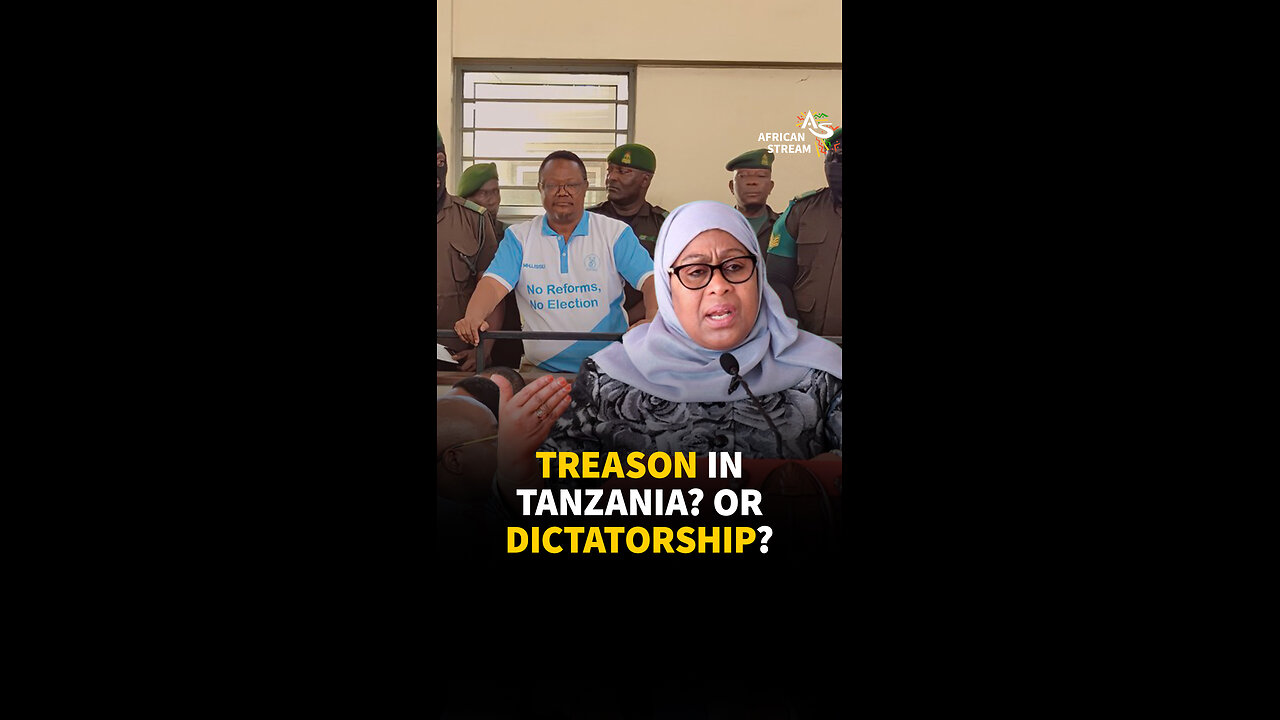Premium Only Content

TREASON IN TANZANIA? OR DICTATORSHIP?
Tanzania is facing growing scrutiny as the trial of opposition leader Tundu Lissu fuels concerns about a potential slide into authoritarian rule.
The 57-year-old, a prominent figure in the CHADEMA party, faces charges of treason - a crime that carries the death penalty in Tanzania. He was arrested in April for allegedly inciting Tanzanians to disrupt the upcoming presidential elections in October, from which his party is barred.
President Samia Suluhu Hassan's administration is now under intense criticism for what many perceive as a systematic erosion of civil liberties and the deployment of heavy-handed tactics to silence dissent. She is also under fire for her crackdown on Lissu’s external supporters. Kenyan activists were barred from showing their solidarity with Lissu in court and deported from Tanzania shortly after their arrival. Among them were Kenya’s former Chief Justice Willy Mutunga, ex-justice minister Marth Karua and human-rights advocates.
The situation in Tanzania reflects a troubling trend in East Africa. Uganda's opposition leader, Kizza Besigye, also faces treason charges in the lead-up to the January 2026 presidential elections. Transnational repression is rising, with opposition figures pursued across East African borders, abducted and imprisoned back home. Last November, Besigye was pursued by Ugandan security agents in Nairobi and forcibly taken back home to face treason charges.
Tanzania, under the stewardship of pan-African leader Julius Nyerere (1922-1999), was a secure refuge and sanctuary for liberation movements, particularly from southern Africa. Guided by the Arusha Declaration of 1967, which shaped Nyerere's domestic and foreign policies, Tanzania cooperated with African liberation movements and worked with other states to achieve African Unity.
Do you think Tanzania is sliding into authoritarianism?
-
 7:27
7:27
AfricanStream
4 months agoCHRONOLOGY OF ATTACKS ON AFRICAN STREAM
6273 -
 3:01:00
3:01:00
Wendy Bell Radio
7 hours agoLike Sheep To Slaughter
73.6K100 -
 1:13:30
1:13:30
DML
3 hours agoDML LIVE: NYC Goes Socialist: Mamdani’s Victory
47.1K15 -
 1:04:43
1:04:43
Chad Prather
15 hours agoTruth on Trial: When Fear Meets Faith
74.1K42 -
 LIVE
LIVE
LFA TV
14 hours agoLIVE & BREAKING NEWS! | WEDNESDAY 11/5/25
4,211 watching -
 1:57:16
1:57:16
The Chris Salcedo Show
15 hours ago $0.18 earnedDems Win In Dem States...And They Celebrate?
37.3K16 -
 1:04:43
1:04:43
Crypto Power Hour
13 hours ago $0.04 earnedPsychology Of Crypto Market Cycles
53.8K6 -
 9:58
9:58
Clintonjaws
12 days ago $0.31 earnedKaroline Leavitt's Response To 'The View' Host's Nasty Attacks Is Perfect
58.5K29 -
 24:23
24:23
World2Briggs
22 hours ago $0.05 earnedTop 10 Towns You Can Retire on $1900 a month in the Pacific North West.
42.3K10 -
 21:23
21:23
Lady Decade
19 hours ago $0.05 earnedThe Lost Sega Neptune Console Refuses To Die !
41.7K6